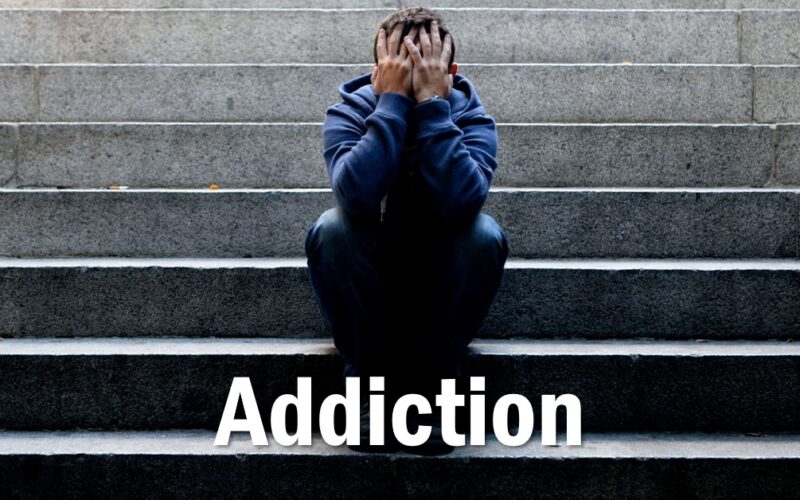The Connection Between Depression And Substance Abuse

Depression is a serious mental illness that affects a significant portion of the population. It is estimated that approximately 14.8 million adults in the United States suffer from depression in any given year.
Co-occurring disorders, such as depression and substance abuse, are becoming increasingly common. It is estimated that approximately 8.4 million adults in the United States have a co-occurring disorder, or a combination of mental illness and substance abuse.
This article will examine the prevalence of co-occurring disorders, the causes of substance abuse in people with depression, the signs and symptoms of depression and substance abuse, how to manage both depression and substance abuse, and treatment options for co-occurring disorders.
In addition to an individual’s mental health, substance abuse can also be an issue. Substance abuse is the use of drugs or alcohol in an excessive manner. This article will explore the relationship between depression and substance abuse and the steps that can be taken to manage both conditions.
The Prevalence of Co-Occurring Disorders
The prevalence of co-occurring disorders, such as depression and substance abuse, has grown significantly in recent years. According to the Substance Abuse and Mental Health Services Administration (SAMHSA), an estimated 8.9 million adults in the United States alone are affected by both major depression and a substance use disorder.
This figure further increases when considering the number of people with other types of mental health disorders, such as anxiety, panic, and bipolar disorder, which may also co-occur with substance use disorders.
Research has suggested a range of explanations for the high degree of overlap between depression and substance abuse. Individuals with depression may turn to alcohol and drugs to self-medicate, in an effort to alleviate their symptoms, or to cope with the difficulties of living with a mental health disorder.
Additionally, low self-esteem, poor impulse control, and a lack of positive reinforcement and social support are all factors that may contribute to an individual’s risk of developing both depression and a substance use disorder.
Causes of Substance Abuse in People with Depression
A person with depression may turn to substance abuse as a means of seeking relief from their negative feelings and emotions. People suffering from depression may believe that they are incapable of achieving happiness without using substances. This can lead to a cycle of substance abuse and depression, where a person uses drugs or alcohol to escape the symptoms of depression, only to experience worsened symptoms and increased cravings in the long run.
Other potential causes of substance abuse in people with depression include:
- A desire to self-medicate in order to cope with their depressive symptoms
- A lack of access to the professional help they need to manage their condition
- A sense of hopelessness and the belief that using drugs and alcohol is the only way to escape their current situation.
Signs and Symptoms of Depression and Substance Abuse
| Research has identified various signs and symptoms that can indicate the presence of concurrent depression and substance abuse. Some of the most common signs and symptoms of concurrent depression and substance abuse include changes in mood, sleep patterns, energy levels, appetite, and concentration. | Symptoms | Depression | Substance Abuse |
|---|---|---|---|
| Mood | Sadness | Aggressiveness | |
| Sleep | Sleeping too much or too little | Insomnia | |
| Energy | Low energy | High energy | |
| Appetite | Loss of appetite | Increased appetite | |
| Concentration | Difficulty concentrating | Impaired judgment |
Other symptoms that can accompany depression and substance abuse include increased heart rate, rapid breathing, sweating, and increased anxiety. These symptoms may lead to further dysfunction in social, occupational, and academic settings. In addition, people with concurrent depression and substance abuse may also experience physical pain, restlessness, and isolation from friends and family. It is essential to recognize the signs and symptoms of depression and substance abuse in order to ensure proper treatment and recovery.
How to Manage Both Depression and Substance Abuse
Managing concurrent depression and substance abuse can be a challenging task, but there are proactive steps that can be taken to help support recovery.
Therapeutic interventions, such as cognitive-behavioral therapy (CBT) and dialectical behavior therapy (DBT), have been shown to be effective in treating both depression and substance abuse. These therapies focus on helping individuals to identify and change the negative thoughts and behaviors that may be maintaining both disorders.
In addition, medications are also often used to treat both depression and substance abuse. Antidepressants, such as selective serotonin reuptake inhibitors (SSRIs), are useful in treating depression, while medications such as naltrexone may be used to reduce cravings and limit substance use.
Finally, individuals should also make lifestyle changes to support recovery. This includes avoiding triggers, engaging in healthy activities, eating a balanced diet, getting adequate sleep, and exercising regularly.
By taking these steps, individuals may be better able to manage both depression and substance abuse.
Treatment Options for Co-Occurring Disorders
Recent studies have shown that approximately 8.4 million US adults experience co-occurring disorders, with 67% of those experiencing a combination of depression and substance use disorder.
Treatment for co-occurring disorders requires a holistic approach tailored to the individual’s needs. This may include a combination of medication, psychotherapy, and other forms of support such as peer support groups.
Medication is often used to manage symptoms of depression and other mental health issues, while psychotherapy can help address any underlying issues that may be contributing to the substance abuse. Additionally, developing healthier coping mechanisms, such as exercise and relaxation techniques, can help individuals manage stress and improve their overall quality of life.
Finding the right treatment plan can be challenging, as there is no one-size-fits-all approach. Mental health professionals can help individuals create a plan that meets their needs and provides the support they need to achieve recovery.
Additionally, many treatment programs specialize in treating co-occurring disorders, which can provide individuals with the best chance of long-term recovery. With the right support and treatment, individuals can manage their depression and substance use disorder and lead a healthy and fulfilling life.
Conclusion
The co-occurrence of depression and substance abuse is a complex issue that requires an in-depth understanding of both conditions. Achieving a successful treatment outcome requires a multifaceted approach that combines both pharmacological and psychosocial interventions.
Symbolically, the journey towards recovery is like a deeply rooted tree that is slowly uprooting itself and reaching for the sky. As the tree reaches for the sky, it is slowly but surely uprooting itself from the depths of despair and taking the first steps towards a brighter future.
The hope is that with the right treatment and support, individuals can break the cycle of co-occurring disorders and find the path to a healthier and happier life.






